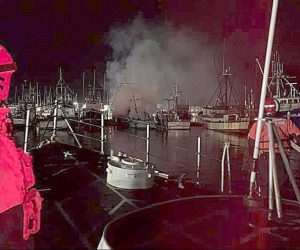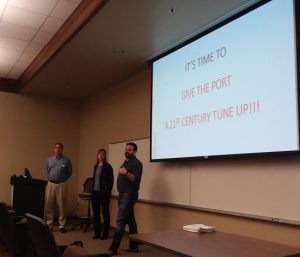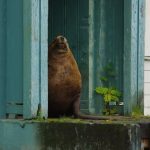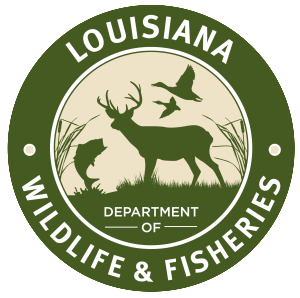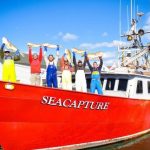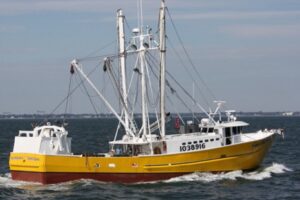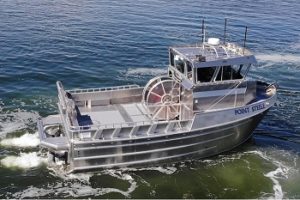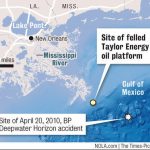Category Archives: Pacific
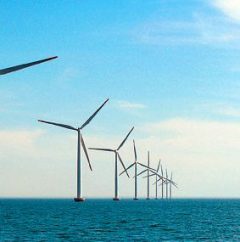
Fisherman, conservationists want more research before developing wind farms
Before Humboldt County begins investing in offshore wind energy, local conservationists and fishermen say more research needs to be done to assess the projects’ local impacts. Harrison Ibach, president of the Humboldt Fishermen’s Marketing Association, said much of California’s waters are already closed to commercial fishing and the installation of wind turbines is going to further reduce the number of areas where fishermen can operate. “We can’t afford to lose any more grounds,” Ibach said. >click to read<07:49
Stakeholders Voice Concerns and Cautious Optimism About Offshore Wind Energy at McGuire-Hosted Hearing – click here to read<
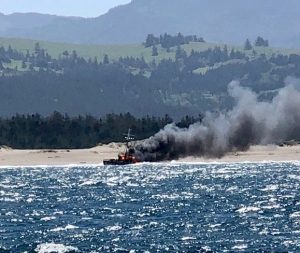
Fishing boat catches fire near Bandon, 4 aboard unhurt
No one was hurt when a commercial fishing boat caught fire Thursday while off the coast near Bandon, the U.S. Coast Guard said. Coast Guard crews were called out after getting reports of a fire on the “Ann Kathleen.” All four people on-board abandoned ship and were rescued by some people passing by in the commercial fishing vessel “Lynoma.” >click to read<09:41
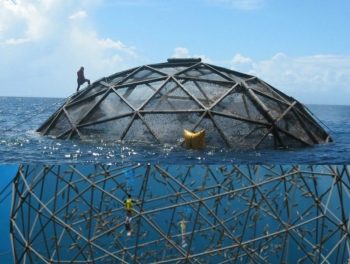
Putting the Brakes on finfish aquaculture in federal waters, Young Introduces Legislation to Protect Wild Fish Populations
Don Young, the Republican congressman for Alaska, has introduced the Keep Fin Fish Free Act, which would specifically prohibit federal agencies from permitting marine finfish aquaculture facilities in federal ocean waters, unless and until Congress passes a future law authorising such permits. “My legislation takes needed steps to prevent the unchecked spread of aquaculture operations by reigning in the federal bureaucracy and empowering Congress to determine where new aquaculture projects should be conducted.>click to read<08:52
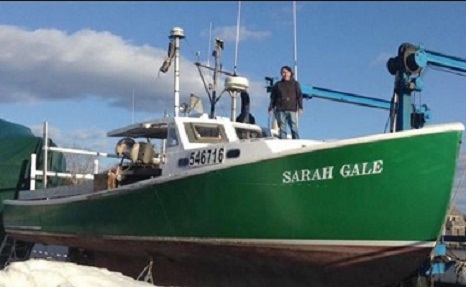
Please support our local commercial fishermen
If you don’t think commercial fishermen are an endangered species – think again. I have been very vocal over the years about my feelings on the commercial fishing industry being in jeopardy, and highlighting the importance of just what an integral part the industry plays in not only the economy, but the infrastructure as a whole, not only in our town and coastal towns across America. As someone with deep ties to our community and the fishing community in particular, I am in a unique position working as a mate on a commercial fishing vessel, and being a journalist. I see so much firsthand that I hope the general public will take into account when I write about it. So here I go again, with more food for thought on an issue that is near and dear to my heart. Thank you for reading, Shelley Wigglesworth >click to read<16:43
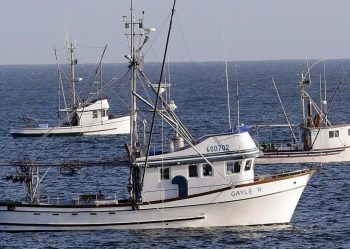
Commercial salmon season opens
The commercial salmon season opened early Wednesday from Pigeon Point (Half Moon Bay) to the U.S./Mexican border. Officials at the Santa Cruz Harbor reported that 26 boats headed out to sea in search of King Salmon on Wednesday. Scores of fishing vessels have been anchored the past few days near the Municipal Wharf in Santa Cruz, some from Northern California and others from as far away as Oregon.>click to read<16:14
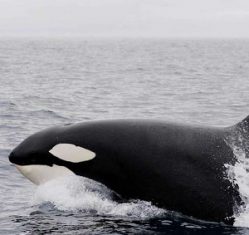
Seattle’s industrial waterfront remains a contamination challenge for orcas. What about Salmon?!
The Southern Resident orcas are often called some of the most contaminated marine mammals on earth. Their fat is filled with toxins like PCBs. When they don’t have enough to eat, they metabolize their fat and that poison ends up in their blood. Though outlawed decades ago, PCBs still remain in the sediment around Elliott Bay.,,, A lot of the toxic contamination issues that we have with our salmon can really be traced to the fact that the state of Washington is not enforcing the Clean Water Act to the extent that they should,” >click to read< Meanwhile, New study finds river wildlife contain cocaine, pharmaceuticals and pesticides in UK->click to read<10:07

June 1 delivery date set for fisheries disaster dollars
More than $29.6 million in federal assistance will be delivered on June 1 to communities affected by the delay in the 2015-16 Dungeness crab fishery and to the Yurok Tribe for the collapse of the Klamath River fall chinook salmon fishery in 2016. Congressman Jared Huffman, who represents Del Norte County, and his colleague, Rep. Jackie Speier (D-Hillsborough) announced Monday that $29.65 million in federal disaster assistance will be delivered to North Coast fishing communities. >click to read<08:05
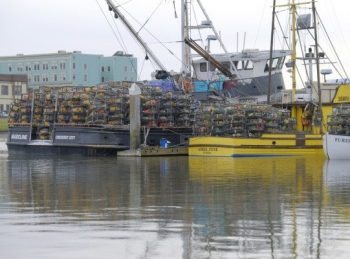
‘Desperately needed’: Congress OKs more than $29 million in disaster relief for fisheries
It’s taken four years but fishermen along the North Coast who have seen crab and salmon seasons truncated and even closed altogether will finally see some relief after $29.65 million in federal disaster relief funding was approved by Congress. It was in the 2015-16 year the Dungeness crab fishery and the Yurok Chinook salmon fishery both collapsed due to poor water quality. Despite $200 million in relief funding made available in 2018, the release of the money was delayed by the U.S. Department of Commerce and it took a letter from U.S. Rep. Jared Huffman and Rep. Jackie Speier to get the ball rolling again last year. >click to read<07:58
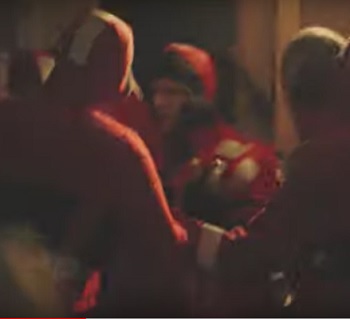
Alaska Ranger: “Shipwrecked in Alaska”
On the night of March 23, 2008, most of the crew sleeps while fishing vessel Alaska Ranger makes her way to the rich fishing grounds off the coast of Alaska. As the Engineer makes his nightly rounds, he discovers a serious flood in the rudder room. He raises the alarm and the captain issues a Mayday call.,,, DISASTERS AT SEA is an original new docuseries airing on Tuesdays at 10 p.m. EST on Discovery Canada (US viewers can check out Smithsonian Channel). Facts about the Alaska Ranger: >Video trailers, click to read<15:10

Federal Relief for Fisheries Disasters Dating From 2015 Finally Available
Representatives Jared Huffman (D-San Rafael) and Jackie Speier (D-Hillsborough) today announced that $29.65 million in long-awaited federal assistance will be finally delivered on June 1st to North Coast fishing communities that suffered major economic impacts due to fisheries disasters dating back to 2015.,,, That federal funding, now finally announced, will be provided in June to the Pacific States Marine Fisheries Commission to distribute to individuals and businesses dependent on fishing. >click to read<14:21

Job Opening: Assistant Plant Manager – West Coast Seafood – Vancouver BC
Are you passionate about the dynamic West Coast fishing industry? Join Aero Trading as an Assistant Plant Manager and develop your leadership skills while sharing your industry knowledge and expertise! About You- You lead by example and bring a positive attitude that motivates those around you. You are passionate about the seafood or commercial fishing industry. Whether it’s helping unload at the dock or getting your hands dirty on the processing line, you are willing to roll up your sleeves to get the job done. >click to read the details<11:10
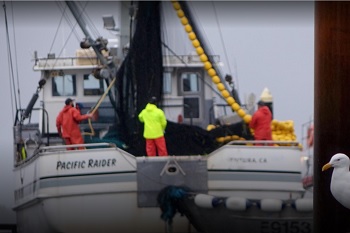
Coos Bay Fishermen Brace For Impacts From Jordan Cove And Channel-Widening Projects
The headland that look out over the ocean entrance to Coos Bay has been given a rather descriptive name by local fishermen. “We call it Chickenshit Point,” says Nick Edwards chuckling. Perhaps it’s because the people watching from up on the hill aren’t considered as brave as those on the boats crossing the dangerous Coos Bay bar below. “A lot of us will come up here and watch. Everybody goes, ‘He’s made it across the bar. He’s made it across the bar!’” he says. >click to read<09:45
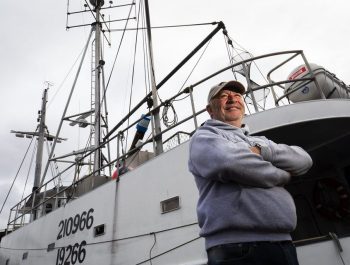
Alaskan halibut, caught by a century-old Seattle boat, provides a glimpse of Amazon’s strategy with Whole Foods
From the deck of his 106-year-old halibut schooner, undergoing a seasonal overhaul at Fisherman’s Terminal in Seattle, skipper Wade Bassi has better insight than most into what’s happening at Amazon-owned Whole Foods Market, at least as pertains to the product he knows best. While he doesn’t buy halibut much — he’s got a freezer full of it — Bassi, 43 years a fisherman, keeps an eye on how it’s handled and presented in the grocery stores and fish markets. >click to read<09:53
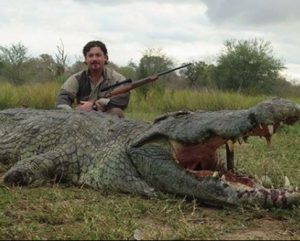
Wildlife conservation groups say Gov. Brown has sold them out in favor of ranchers, hunters and commercial fishers.
The Oregon conservation community was shocked this week by the nomination of a big game hunter to the state’s Fish and Wildlife Commission, saying the nominee has shown a disdain for animals and has conflicts of interest. James Nash, a retired marine, hunting guide and rancher who lives in Wallowa County, was tapped by Gov. Kate Brown,,,, >click to read< And they describe it as a betrayal by a governor who they say pledged during her re-election campaign last year to protect the threatened species—but, after winning, picked nominees favoring groups that include ranchers, loggers and commercial fishermen, and hunters whose economic interests may conflict with the desires of a majority of Oregonians. >click to read<14:02
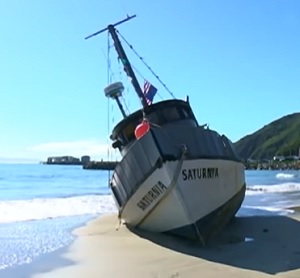
Beached fishing boat removed in pieces from Port San Luis beach
More than two months after a fishing boat washed ashore during a rough storm at Avila Beach in February, the vessel has been removed and Port San Luis is footing the bill. The Saturnia, the beached boat owned by Steven Snyder, was destroyed Wednesday and removed in chunks from the sand near Port San Luis. >Video, click to read< 09:28
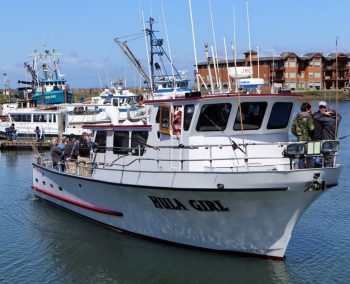
Charter fishing fleet casts wary eye toward possible fishing cutbacks to save orcas
Pacific Northwesterners are undeniably fond of their endangered resident killer whales. Many locals are also fans of salmon fishing, a hobby that sustains charter fishing fleets in coastal harbors from Neah Bay, Washington, to Brookings, Oregon. But now there is a chance future fishing trips on the ocean could be curtailed to leave more food for the killer whales. Regulators are preparing to reassess the Pacific salmon harvest and an environmental lawsuit seeks more action to save orcas. >click to read<
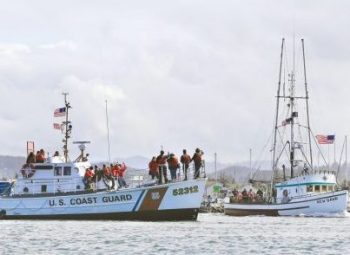
Blessing of the Fleet is May 5 in Newport
The Newport Fishermen’s Wives will once again be sponsoring an event that has become a strong tradition in Newport’s fishing community called the Blessing of the Fleet.,,, This year’s blessing will be on Sunday, May 5, in conjunction with Newport Loyalty Day & Sea Fair Festival. The Newport Fishermen’s Wives are focusing this year’s events on the importance of safety. Fishing is the most dangerous occupation in the United States. The fisherman safety and survival training is essential to ensure fishermen can respond to emergencies while at sea and save lives. >click to read<12:52

Even after sinking of Seattle-based F/V Destination, Coast Guard slow-walks training for fishing boat skippers
The Coast Guard investigation into the 2017 sinking of the Seattle-based Destination, released last month, was the latest in a long succession of Coast Guard inquiries to spotlight serious stability problems that led to commercial fishing boats going down and their crews dying. Earlier findings prompted Congress, in a 2010 overhaul of commercial fishing safety laws, to require operators take a short course that reviews how loading gear, boat modifications and changing weather conditions can affect a vessel’s ability to stay afloat. But nine years later, the Coast Guard has yet to come up with regulations to enforce the safety mandate. Even in the aftermath of the Destination investigation, which documented the missteps that contributed to the loss of six crew members in the Bering Sea, Coast Guard leaders have yet to say when this training rule might be in place. So the stability courses remain voluntary, often sparsely attended. >click to read<11:07

Letter: ‘We found her in the tulip fields’ – a story of tragedy, and beauty
After wandering the furthest reaches of the tulip fields in beautiful Skagit Valley, Mt. Vernon, Washington, and me holding our granddaughter the whole time (I wouldn’t give her up), I needed a break from walking and so sat down on the bench outside the gift shop as the girls wandered inside.,,, The two sisters exited the gift shop with not one, but two – one purchased by each of them because they couldn’t decide which was cutest – of the softest, impossibly long lop-eared, scraggle-furred, stuffed rabbits affectionally – per the tag – named ‘Harey’, or, actually Harey One, and Harey Two. Harey hails from Cricket Island, and his tale began with one of the worst commercial fishing disasters in U.S. history,,,, >click to read<09:31
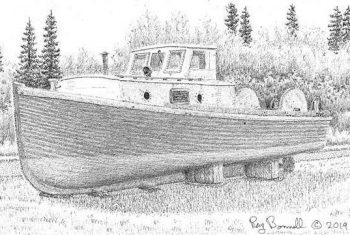
K-6 gillnetter is a reminder of Kenai’s long fishing history
One of the earliest commercial transactions involving Alaska salmon occurred in 1786. In that year two British ships stopped in Cook Inlet, which was then under Russian-American Company control, to trade Hawaiian yams for fresh salmon. The Russian-American Company never developed a for-profit salmon industry. However, after the United States acquired Alaska in 1867, Americans began operating salteries in Southeast Alaska to preserve the fish for market. In 1878, the first Alaska cannery was built at Klawock on Prince of Wales Island. Within four years, canneries had reached Cook Inlet in Southcentral Alaska. >click to read<08:31
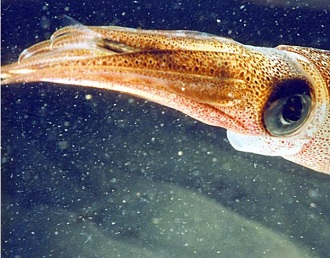
Crescent City Harbor District – Harbor prepares for potential squid fishery
Though they’re most abundant between Baja, California and the Monterey Bay, the Crescent City Harbor District is preparing for the possibility that fishermen may bring market squid to its docks. Commissioners on Thursday voted 4-0-1 in favor of adding a quarter-cent poundage fee for squid to its fee schedule. Commissioner Carol White was absent. According to Crescent City Harbormaster Charlie Helms and Commissioner Rick Shepherd, a quarter-cent poundage fee is the going rate at other ports that see market squid come across their docks. >click to read<14:28
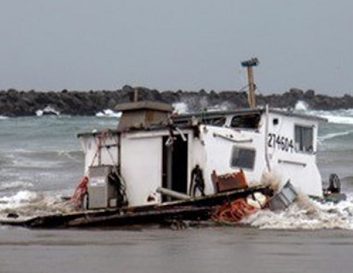
F/V Mary B II – Public hearing slated on fatal capsizing beginning at 8 a.m. on May 13
An investigation into the fatal capsizing of a boat off the coast of Newport remains ongoing. A public hearing will be held at Newport City Hall beginning at 8 a.m. on May 13. The hearing will focus on the capsizing of the commercial fishing vessel Mary B II, which led to the deaths of three fishermen at the entrance of Yaquina Bay in Newport. On Jan. 8, the three fishermen were approaching the Yaquina Bay Bar aboard the 42-foot Mary B II when it capsized without warning, tossing two overboard into the rough seas, according to a Coast Guard. >click to read< The hearing will be streamed live each day >click here to listen< 11:56
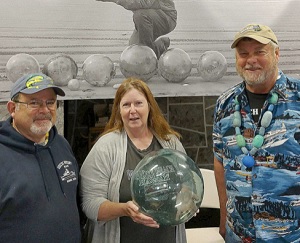
Westport Crab Races, derby and more in Westport this weekend
A seafood feast, crab races, crab and clam derbies with cash prizes, and the annual Whale of a Sale are all on tap this weekend in Westport.,,, The nonprofit commercial fishing group WEfish and the Washington Dungeness Crab Association are hosting the annual crab derby. The marina will be thoroughly stocked with Dungeness crab ahead of time, and each crab is marked with a cash value, ranging from $25 to the $500 grand prize. The derby starts at 8 a.m. and goes until 7 p.m. >click to read<09:50
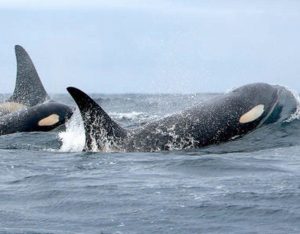
Salmon Fisheries Set As Managers Start Process To Protect Endangered Orcas
The organization that sets limits for commercial, recreational and tribal salmon fisheries in the Pacific Northwest wrapped up their work Tuesday at a meeting in Northern California. The Pacific Fisheries Management Council bases the limits on salmon run projections up and down the coast. While the chinook salmon catch will be slightly lower than last year, the coho fishery in Washington and northern Oregon will be much improved. Recreational anglers would benefit most from this. In addition, the council is starting work on plans to rebuild five Northwest fish runs considered to be “overfished,”,,, >click to read< 09:07
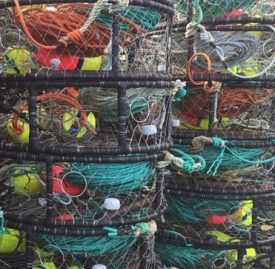
California’s whale protections must also protect crab fishing industry – Noah Oppenheim
At midnight Monday, California closed its springtime Dungeness crab fishing season coastwide, three months early. Hundreds of California crab fishermen and fisherwomen who rely on this fishery to feed their families will be off the water. They will have to find work elsewhere. Some may lose their livelihoods.,,, The ability of California fishermen to provide a seafood resource that the public rightfully owns is now even more constrained. >click to read<13:46
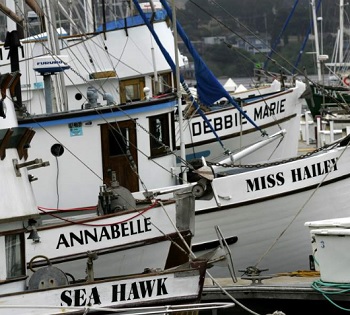
Best salmon return since 2014 leads to longer season for North Coast fishery
North Coast fishing crews idled by an early end to the Dungeness crab season will have a longer 2019 salmon season than in recent years after fishery managers finalized dates Tuesday, a reflection of this year’s healthier projected adult spawning run. In fact, this generation of returning adult king salmon is thought to be the most abundant since 2014, allowing for a season opener beginning May 16 and stretching to at least late September in coastal waters between Point Arena on the southern Mendocino Coast and Pigeon Point on the coast of San Mateo County. >click to read<10:08
Council Adopts West Coast Salmon Seasons – >click to read<
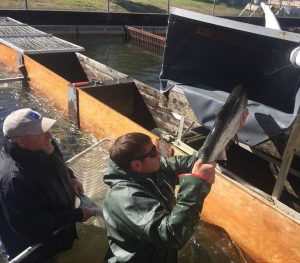
OCEAN SALMON: Council adopts new recommendations
The Pacific Fishery Management Council has adopted ocean salmon season recommendations that provide recreational and commercial opportunities for most of the Pacific Coast, and achieve conservation goals for the numerous individual salmon stocks on the West Coast. “Although some salmon stocks are returning in stronger numbers than last year, balancing fishing opportunities with conservation is always a challenge for the Council, its advisors, fishery stakeholders, and the public,” Pacific Fishery Management Council Executive Director Chuck Tracy said. >click to read<17:05
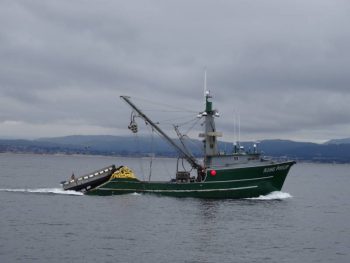
PFMC Officials: No Sardine Fishing Off California This Year Due to Steep Population Decline
West coast regulators have voted unanimously to ban commercial sardine fishing for the fifth straight year after a recent evaluation of the northern Pacific stock revealed a steep decline. The ban on commercial sardine catch spans the entire length of the U.S. West Coast.,,, A new assessment of northern Pacific sardine stocks by the National Oceanic and Atmospheric Administration (NOAA).,,, Not all fishermen agree with the decision to keep the sardine fishery shuttered. Diane Pleschner-Steele, executive director- California Wetfish Producers Association, said NOAA’s sardine survey under-counts the fish, and that the fishermen she hears from are noticing a comeback. >click to read<10:59






